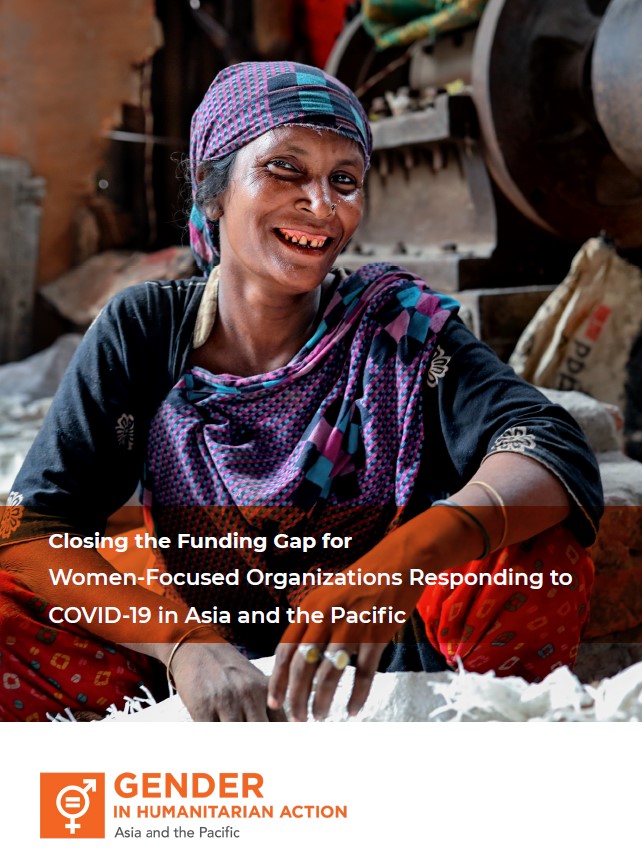
Closing the Funding Gap for Women-Focused Organizations Responding to COVID-19 in Asia and the Pacific

In the first six months of the COVID-19 pandemic, the disproportionate impact on women and girls has been severe across the region. As previously highlighted in a regional analysis, the pandemic has particularly affected women and girls by exacerbating burdens of unpaid care work, increasing risks of gender-based violence (GBV), impacting livelihoods of women disproportionately especially in the informal sector, and reducing access to sexual and reproductive health. At the same time that the pandemic heightens the needs and vulnerabilities of women and girls, women-focused organizations (WFOs) that serve them have highlighted severe operational and funding challenges. Those challenges threaten to roll back hard-earned gains in gender equality, women’s participation in decision-making, and the empowerment of women and girls in the region.
Following a visibility scan of response plans, analysis of funding flows, analysis of the Gender with Age Marker, and consultations with diverse women-focused organizations and networks in the region, the Regional Gender in Humanitarian Action Working Group’s key messages are as follows:
- The COVID-19 pandemic has exacerbated the needs of women, girls and persons of diverse sexual orientations, gender identities and expressions, and sex characteristics. Women-focused organizations (WFOs) play a critical role in meeting the immediate needs of women and girls in those communities and responding to pre-existing gender inequalities and new operational challenges arising from the pandemic.
- As of mid-July, there have been zero direct donor contributions to local WFOs through the COVID-19 Global Humanitarian Response Plan in Asia. Donors should target and urgently channel funding to local WFOs.
- Targeting funding towards WFOs is critical to reach the “last mile” and leave no one behind.
- Data show persistent underfunding to initiatives for gender equality and to prevent and respond to gender-based violence (GBV) in humanitarian action globally, yet such funding provides many returns. Global studies show a return of between $1.70 and $150.00 for every dollar spent on programming for women and girls, with a median value of $8 for every dollar spent.